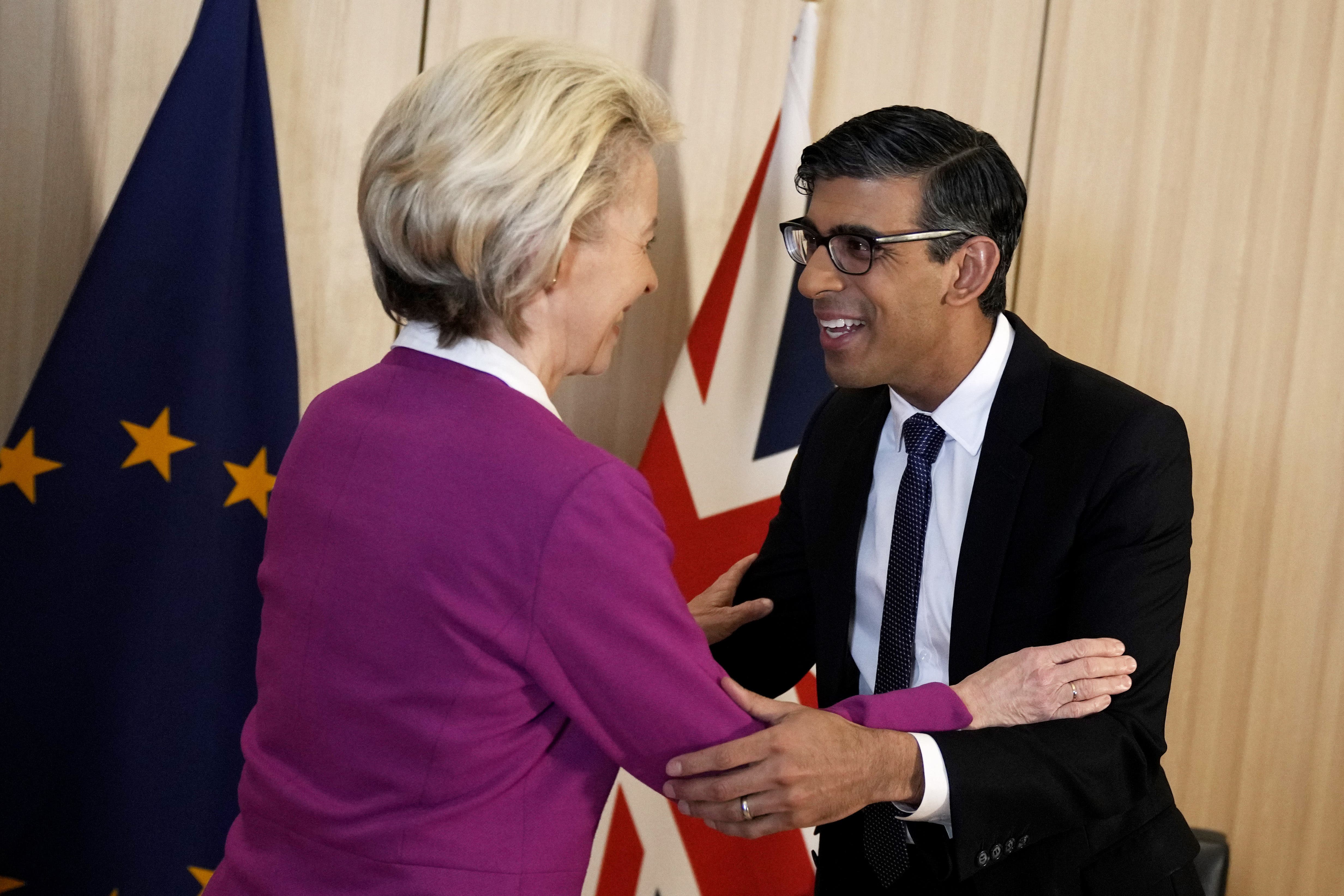EU agrees post-Brexit deal to delay electric car tariffs for three years
European Commission wants to push back new rules until 2027 in boost for Rishi Sunak
Your support helps us to tell the story
From reproductive rights to climate change to Big Tech, The Independent is on the ground when the story is developing. Whether it's investigating the financials of Elon Musk's pro-Trump PAC or producing our latest documentary, 'The A Word', which shines a light on the American women fighting for reproductive rights, we know how important it is to parse out the facts from the messaging.
At such a critical moment in US history, we need reporters on the ground. Your donation allows us to keep sending journalists to speak to both sides of the story.
The Independent is trusted by Americans across the entire political spectrum. And unlike many other quality news outlets, we choose not to lock Americans out of our reporting and analysis with paywalls. We believe quality journalism should be available to everyone, paid for by those who can afford it.
Your support makes all the difference.Rishi Sunak has been handed a major boost after EU officials agreed to delay post-Brexit tariffs on electric vehicles (EVs) ahead of a looming “cliff edge” deadline.
The UK government had been urging Brussels to push back the costly new tariff rules set to come into force in January 2024 as part of Boris Johnson’s Brexit trade deal.
On Wednesday the European Commission said it wanted to delay the rules – set to hit the electric cars trade between the EU and Britain – by three years.
The commission also said it was setting aside an additional €3bn (£2.6bn) to boost the EU’s battery manufacturing industry – a move designed to counter China’s dominance in batteries.
Mr Johnson’s Brexit Trade and Cooperation Agreement (TCA) agreed that, to qualify for zero tariffs, at least 45 per cent of the value of EVs need to be from the EU or Britain.
Import tariffs of 10 per cent were set to apply on companies for falling short of those requirements in their cars and other vehicles.
The Independent revealed in October that British industry bosses feared the changes could increase the price of electric vehicles in the UK by £6,000.
Given batteries represent 30 to 40 per cent of a car’s value and that most are from China, carmakers argued they would not have been able to meet the content requirements.

The new EU proposal is to extend the first transition period by three years to 2027 when the full local content requirements of the TCA will apply. A second planned transition period will not apply.
Thierry Breton, the influential European commissioner, had said in September that it would be wrong to give in to pressure from one industry. “If something has been negotiated, it shouldn’t be changed,” he said on the Brexit deal.
But European Commission vice-president Maros Sefcovic – who oversees EU relations with Britain – said on Wednesday that Russia’s invasion of Ukraine and soaring energy prices meant that EU battery production had not scaled up as planned.
Mr Sefcovic also cited the subsidy schemes offered by Europe’s rivals for the change in heart among top Brussels officials.

The EU had been warned of an “existential threat” posed by new rules of origin by carmakers. The UK’s Society of Motor Manufacturers and Traders (SMMT) previously called for a delay until 2027.
The VDA – the lobby group for Germany’s car industry – ramped up the pressure by saying “we must urgently make adjustments” to the Brexit deal.
The breakthrough comes after Mr Sunak managed to clear up some of the post-Brexit mess by agreeing a deal for the UK to rejoin the EU’s £85bn Horizon science research scheme. It was formally agreed this week.
Earlier this year, the Tory leader agreed the Windsor Framework with European Commission president Ursula von der Leyen to ease post-Brexit trading problems in Northern Ireland.
Ms Von der Leyen last week described it as “a new beginning for old friends”. She also suggested that young Britons could still reverse Brexit by deciding to rejoin the EU in the years ahead.

Join our commenting forum
Join thought-provoking conversations, follow other Independent readers and see their replies
Comments